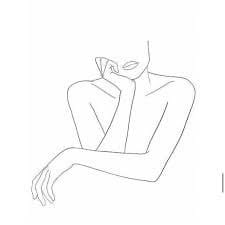Islamic Feminism – Report on a university course by Dr. Mansooreh Khalilizand and Prof. Dr. Kata Moser
by:

Islamic feminism is a highly controversial title of a vivid and productive discourse with an already long history. Not only does the term and its implications spark heated debates and touch upon boiling societal issues, but it also strikes a nerve for scholars and students interested in current socio-political challenges. In the winter semester 2023-24, Khalilizand and Moser chose “Islamic feminism” as the subject of their joint university course. The course delved into Islamic feminism as one of the most influential intellectual currents in the Islamic world. Its historical development, theological commitments, epistemological foundations and methodologies were central themes of the course. The following outline marks the cornerstones of the discussed themes.
Historical aspects
The first feminist voices: The attention to women’s issues in the Islamicate world arose towards the end of the 19th century, at the beginning mainly in works authored by men such as Qasim Amin (1863-1908, Egypt) and Tahar Haddad (1899-1935, Tunisia), calling for the “liberation of women”, so the title of Qasim Amin’s book, in Arabic Taḥrīr al-marʾa (1899). More significant however were the women, who for the first time in the history of the Islamic world stood up for their rights, criticizing the patriarchy dominating their familial, societal and juridical structures. Bibi Khanoom Astarabadi (1858/59 – 1921, Iran) authored her remarkable book Faults of Men (maʿāyib al-rijāl) in 1894. Nazira Zeineddine (1908–1976, Lebanon) published Unveiling and Veiling (al-sufūr wa-l-ḥijāb) in 1928 and one year later The Girl and the Sheikhs (al-fatāt wa-l-shuyūkh). The activism of Huda Shaarawi (1879-1947), one of the pioneers of women’s movements in Egypt, is narrated in the posthumously published autobiography Memoirs (Mudhakkirāt) in 1981. The phenomenon that women raise their voices to question the omnipresent patriarchal order and claim a public space for themselves was unprecedented in Islamic world. This heralded the formation of a new type of subject: ‘Muslim’ feminists.
State feminism: As most Islamic nations gained independence, women’s issues became a major concern of the official politics of these states, which lead to many praiseworthy results in the area of political rights, access to education and to healthcare, most notably in Türkiye since the foundation of the Republic in 1923, in Iran since the Pahlavi reign in 1925, or in Tunisia since independence in 1956. However, the fact that the state takes the lead in women’s issues has been labelled early on as “state feminism” and criticized for paternalism, as well as often for westernization and alienation.
Islamic feminism: The rise of political Islam that found its most visible manifestation in the proclamation of the Islamic Republic of Iran (1979) brought Islam back into the picture as a resource for dealing with contemporary political and societal issues. For Ziba Mir-Hosseini, this development paved the way for the appearance of Islamic feminism. According to her, “Muslim feminists” refer to a group of feminist intellectuals, “whose frame of reference is Islam and its sacred text.” These feminists try to work out an interpretation of Islam that fulfills the expectations of a modern subject in terms of gender justice, women rights and alike. Islamic jurisprudence and hermeneutics of Quran and hadith are two main fields in which Muslim feminists, such as Fatma Mernissi (1940-2015), Amina Wadud (1952-), Asma Barlas (1950-) and many other female scholars have been remarkably productive. The central characteristic of this discourse is its religious commitments and concerns.
Philosophical aspects
In our course, we reflected upon the epistemological foundation and legitimacy as well as the methodologies of Islamic feminism from a philosophical perspective. Some have questioned the possibility of Islamic feminism as a theory and declared the concept as an obvious oxymoron. While we discussed this criticism seriously, we addressed equally as seriously the question of how and why something that already exists is deemed impossible. The ‘authenticity’ of Islamic feminism as a discourse was another point we explored over the semester: Is Islamic feminism merely a byproduct of Western feminism, inconsistently displaced in the context of Islamic societies, rendering it futile in principle? Or is it instead a discourse tightly connected with its concrete social context, growing organically in the soil of Islamic societies?
Lana Sirri’s Islamic Feminism: Discourses on Gender and Sexuality in Contemporary Islam (Routledge 2021), Zahra Ayubi’s Gendered Morality: Classical Islamic Ethics of the Self , Family, and Society (Columbia University Press 2019) and Larna Finlayson’s An Introduction to Feminism (Cambridge University Press 2016) constituted some of the literature based on which we organized the discussion sessions on the philosophical aspects of Islamic feminism.
Featured scholars
With regard to the fact that Islamic feminism is a discourse still in the process of formation and a collective work in progress, we were able to invite several high-profile scholars who currently contribute to the development of Islamic feminism from within the context of Islamic societies, namely Ziba Mir-Hosseini (University of London), Fatemeh Sadeghi (University College London), Haifaa Jawad (University of Birmingham), Ravza Altuntaş-Çakır (Marmara University) and Fatima Tofighi (University of Religions, Qom). They generously shared their original and diverse perspectives on this subject with us, and the students had the unique opportunity to enter into dialogue with the authors of the papers and chapters which they committed to read and to prepare for the course.
